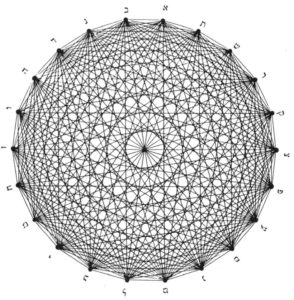 We read in the Torah that “The hidden things are for Hashem, our God, and the revealed things are for us and our children forever, to fulfil the words of this Law.” (Deuteronomy 29:28) One of the common explanations for the “hidden things”, nistarot, is that it refers to Kabbalah, the Jewish mystical tradition. Unfortunately, the term “Kabbalah” is among the most misunderstood and misused today. Some people think it refers to a religion of its own, or some sort of cult. Others think it is a secret book. Many more associate it with black magic or witchcraft (God forbid). It has given rise to the English word “cabal” (a sinister or conspiratorial group). None of these things are even remotely true.
We read in the Torah that “The hidden things are for Hashem, our God, and the revealed things are for us and our children forever, to fulfil the words of this Law.” (Deuteronomy 29:28) One of the common explanations for the “hidden things”, nistarot, is that it refers to Kabbalah, the Jewish mystical tradition. Unfortunately, the term “Kabbalah” is among the most misunderstood and misused today. Some people think it refers to a religion of its own, or some sort of cult. Others think it is a secret book. Many more associate it with black magic or witchcraft (God forbid). It has given rise to the English word “cabal” (a sinister or conspiratorial group). None of these things are even remotely true.
Kabbalah simply refers to the more complicated, esoteric teachings of the Torah. As is well-known, the Torah can be studied on four levels: peshat, “simple”; remez, “allusions” (reading between the lines); drash, “allegory” and metaphor; and sod, “secret”. Kabbalah is primarily concerned with the latter category. Like other mystical systems, its purpose is to guide the person into a deeper understanding of God, the universe, and one’s soul. It involves a great deal of metaphysics and cosmogony, prayer and meditation, along with a heavy emphasis on penance and tikkun, “spiritual rectification”. A large part of Kabbalah is about understanding God’s mitzvot on a deeper level. Reincarnation and related spiritual migrations play a sizeable role, as does the cosmic struggle between the forces of good and evil. Ultimately, Kabbalah is about elevating ever-higher and drawing as close to God as possible.
What follows is six big myths about Kabbalah, and why they are totally wrong. Continue reading →


